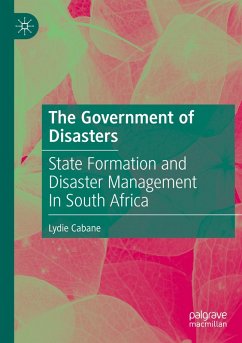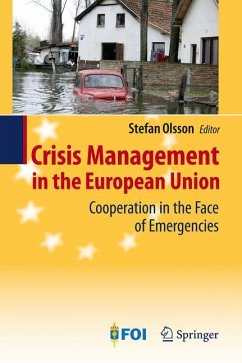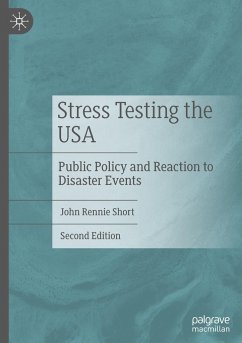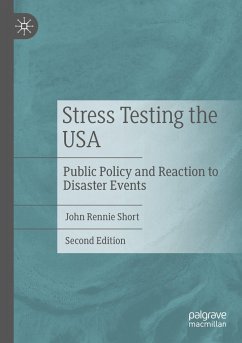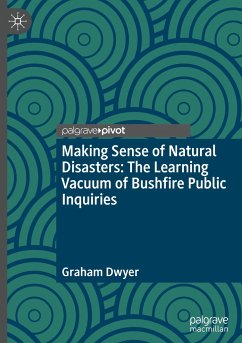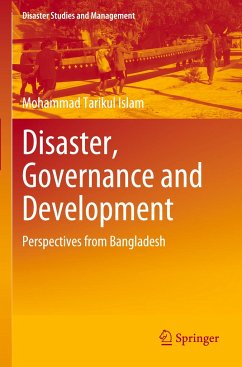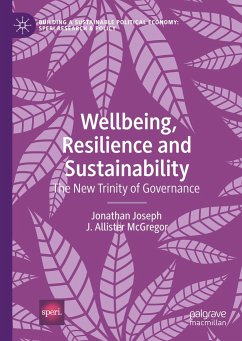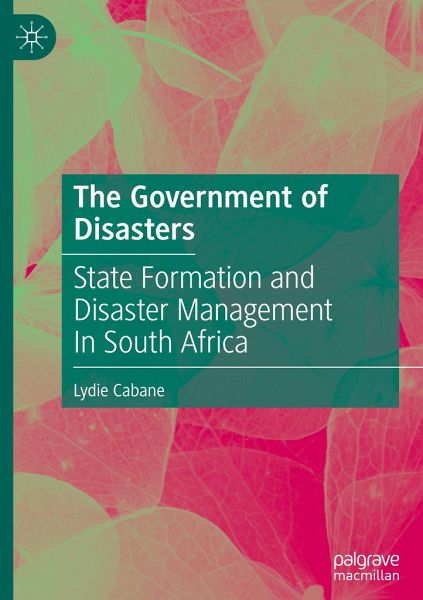
The Government of Disasters
State Formation and Disaster Management In South Africa
Versandkostenfrei!
Versandfertig in 6-10 Tagen
98,99 €
inkl. MwSt.
Weitere Ausgaben:

PAYBACK Punkte
49 °P sammeln!
This book examines the history of disaster management in South Africa, showing how experts, professionals and policymakers have crafted and implemented disaster policies from the mid-twentieth century to the present day. It assesses the ways in which states become concerned with disasters, the extent to which disaster management contributes toward state formation, and who and what disaster management protects. It also considers the ways in which the politics of protection continuously shift as political regimes change. In telling the story of how policies surrounding disaster protection have e...
This book examines the history of disaster management in South Africa, showing how experts, professionals and policymakers have crafted and implemented disaster policies from the mid-twentieth century to the present day. It assesses the ways in which states become concerned with disasters, the extent to which disaster management contributes toward state formation, and who and what disaster management protects. It also considers the ways in which the politics of protection continuously shift as political regimes change. In telling the story of how policies surrounding disaster protection have evolved in South Africa, the book demonstrates how the security apparatus that shaped disaster management was re-oriented in the twenty-first century towards development, alongside bureaucratic reforms that aimed to democratize the state. By examining the wider context of the globalization of disaster management, it also highlights the often unrecognised role of experts from Africa, LatinAmerica and Asia in shaping global disaster policies. The book will appeal to scholars and students of disaster governance, public policy, state formation, and African politics.





